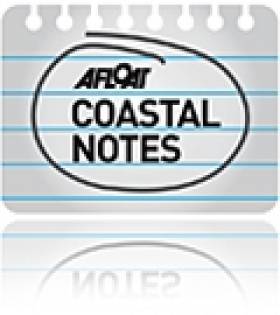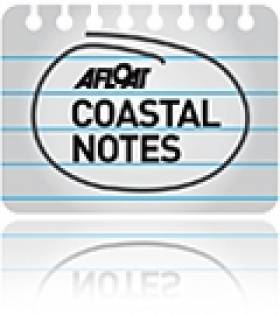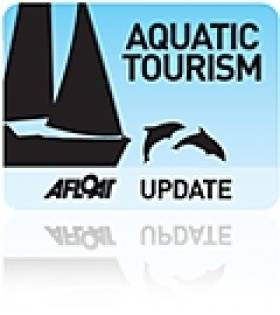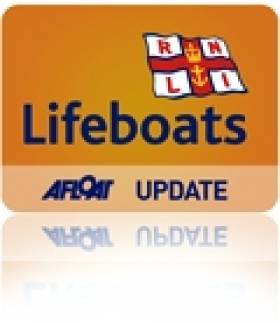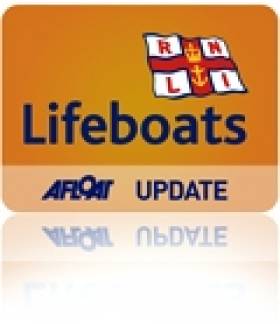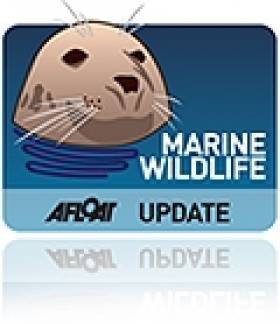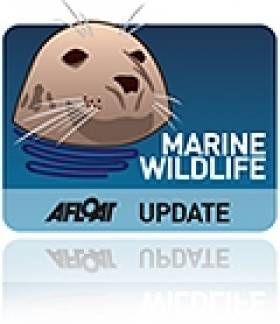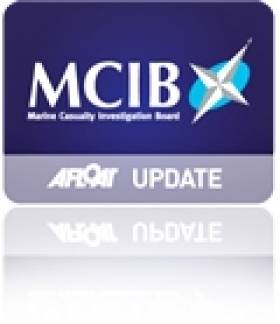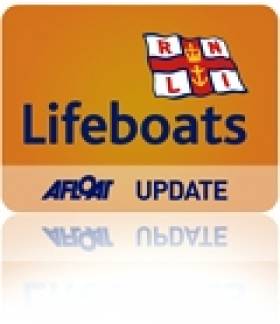Displaying items by tag: west cork
Pain Of Whiddy Island Disaster Remains 35 Years On
#WhiddyIsland - Thirty-five years on from the disaster at the Whiddy Island oil terminal in Bantry Bay, one of those who survived the incident has told The Irish Times how the tragedy still resonates throughout West Cork.
"The joy of Christmas doesn’t exist for me anymore," said then Gulf Oil pumpman Brian McGee, who admits he "can still vividly recall images from that night" in the early hours of 8 January 1979.
Fire broke out on board the berthed Total oil tanker Betelgeuse, causing an explosion that claimed the lives of 50 people - including locals Charlie Brennan, Tim Kingston, Denis O’Leary, Neilly O’Shea, Jimmy O’Sullivan and David Warner.
The Irish Times has much more on the story HERE.
Locals Boast About Ireland's Coast From Belfast To West Cork
#CoastalNotes - Professional snowboarder Aimee Fuller tells the Guardian about her favourite attractions around the coast of Northern Ireland.
From the new Titanic Belfast centre to the city's renowned St George's Market, the spectacular views of Belfast Lough from the top of Cave Hill, peaceful lough-side walks in Holywood and surfing in Portrush, the English pro - who moved to NI in her teens - shows there's a lot to love about her adopted home.
Meanwhile, at the opposite end of the island of Ireland, West Cork is hailed as "a perfect place to sea-kayak, relax and drink in nature", according to the Wall Street Journal - whose writer Javier Espinoza paddles out on a coastal tour with Atlantic Sea Kayaking.
Though the area is tinged with tragedy - after last year's loss of five fishermen with the sinking of the Tit Bonhomme - there is respect and admiration for the sea, especially on a calm day when kayakers can glide from shipwrecks to forests to bird sanctuaries in a single excursion.
West Cork Holiday Deserves Its Accolades
#Tourism - While angling on Ireland's waterways is undoubtedly a big attraction, there's more to this island's picturesque spots than great fishing, as Brian Gallagher of Scotland's Daily Record discovered on his recent holiday to the south-west.
Gallagher's three-day whistle-stop tour of West Cork included a meal in Ireland's 'food capital' Kinsale during the harbour town's annual arts festival, and a whale watching trip out of Baltimore that took in the rugged, lonely beauty of Fastnet Rock in the Atlantic.
Yet despite cramming a lot into his visit, he "still felt refreshed as it involved a lot of gentle sailing and tasty food.
"I have to admit this corner of Ireland, and the West Cork islands, certainly deserves its culinary title and maybe a visit… or two."
The Daily Record has more on the story HERE.
#RNLI - The Castletownbere RNLI volunteer lifeboat crew have aided in the recovery of the body of a man from the sea some 2.4km off Travarra on the Beara Peninsula in West Cork.
The lifeboat launched at 1.35pm yesterday afternoon (Monday 22 July) and was joined by Irish Coast Guard helicopter Rescue 115, Derrynane inshore rescue and the Castletownbere coastguard.
A man believed to be in his earl 20s was sighted in the water at Travarra at around 2.30pm and recovered by a local vessel before being transferred onto the RNLI lifeboat and returned to Castletownbere. He was pronounced dead at the scene by a doctor.
Commenting on the call-out, Castletownbere RNLI deputy coxswain Paul Stevens said: “This is a terrible tragedy and we extend our sympathies to the young man’s family and friends.”
Tit Bonhomme 999 Concerns Will Be Considered Says Varadkar
#TitBonhomme - Transport Minister Leo Varadkar says he will consider concerns over the handling of emergency calls relating to the Tit Bonhomme tragedy, as The Irish Times reports.
The minister commented after a meeting last week with the widow of the stricken boat's skipper Michael Hayes in Union Hall in West Cork.
Hayes and four of his five-man crew lost their lives when the trawler went down after striking rocks at the mouth of Glandore Harbour. The only survivor was Egyptian fisherman Abdelbaky Mohamed, who was able to swim to shore.
The recent inquest into the incident criticised the handling of 999 emergency calls from the fishing boat prior to its sinking, as it emerged that neither the Irish Coast Guard nor the Marine Casualty Investigation Board were aware that not one but two calls were made by crewman Kevin Kershaw.
It emerged during the inquest that the coastguard was only notified of the event on the second call, three minutes after the first.
Barrister Elizabeth O'Connel, who represented Hayes' widow Caitlín Uí Aodha at the inquest, described the dearth of details taken by the operator on the first call as "extraordinary".
Ireland's emergency call service, operated by BT Ireland from three locations, is currently under review by the Department of Communications.
The Irish Times has more on the story HERE.
Busy Times For RNLI At Courtmacsherry And Courtown
#RNLI - Courtmacsherry RNLI assisted two people after their yacht got into difficulty at the weekend.
The volunteer lifeboat crew was called out at 5.15pm on Saturday (13 July) to go to the aid of a yacht off Courtmacsherry Harbour in West Cork.
The all-weather lifeboat with a crew of six was underway within minutes and proceeded to the area where the casualty had developed mechanical failure. The lifeboat arrived on the scene in 10 minutes and proceeded to take the yacht with two people on board in tow.
Both the lifeboat and the stricken vessel were subsequently berthed at the pier in Courtmacsherry village.
This has been a busy week so far for Courtmacsherry RNLI with today's call-out being the fourth in five days.
The others were on Tuesday 9 July to an overdue jet ski in Clonakilty Bay, Thursday 11 July to the aid a windsurfer off Garrettstown, and Friday 12 July to a reported dingy off the Old Head of Kinsale which turned out to be a dead and upturned whale in the sea.
Elsewhere, Saturday was a busy evening for the Courtown lifeboat in Co Wexford.
- lifeboat was launched to a report of two vessels aground in a cove south of Courtown Harbour, quickly locating the vessels – a 15ft speedboat and a personal water craft (PWC) – just south of the harbour in the area known as Salt Rock.
There were two people with the vessels and the speedboat was grounded but swamped.
The lifeboat took both casualties, who were very cold, back to the harbour and then returned first to recover, bail out and tow the speedboat back, and then out to tow the PWC back into the harbour.
The lifeboat then returned to station and refuelled, ready for the Sea Sunday celebrations the following day.
Minke Whales Putting On A Show Off West Cork and Kerry
#MarineWildlife - The Irish Whale and Dolphin Group is reporting a "high volume of sightings" of minke whales - plus the odd fin whale - off the coasts of West Cork and Kerry as this week's heatwave continues to bask the country.
The first reports from the early part of the week showed a big increase of sightings and activity in the southwest region - but also off Mullaghmore, the popular surfing spot in Co Sligo, where as many as three minkes were spotted last weekend, and as far afield as Belfast Lough where several minke whales were photographed.
As the week progressed, the first confirmed sighting of a fin whale came in from Slea Head in Co Kerry in waters teeming with six minke whales and around 150 common dolphins.
And a whale watch trip of West Cork came into range of an amazing 12 minke whales, including a number of juveniles who seemed to make a game of swimming around the watchers' vessel.
The latest reports came in on Thursday from Baltimore and Clougher Head, which indicate that fin whales may be arriving here in big numbers. Here's hoping a few humpbacks will follow in their wake!
New Research Says Sonar Sends Whales Scurrying
#MarineWildlife - The Guardian reports on new research which proves that military sonar has a direct effect on the behaviour of whales in our oceans - even leading to mass strandings.
The studies, part funded by the US Navy, found that beaked whales where particularly sensitive to sonar - and that even blue whales, the largest animals on earth, were distracted from feeding by the subsurface noise.
It's long been feared that the use of sonar is to blame for unusual behaviour among whales, who navigate and communicate with each other over long distances using sound.
As previously reported on Afloat.ie, the Irish Whale and Dolphin Group (IWDG) identified sonar activity by Royal Navy submarines as a possible cause of a the mass stranding of pilot whales in Donegal in November 2010, in which as many as 35 whales died.
Now for the first time, sonar has been proven to affect behaviour of cetaceans to a detrimental degree, confirming for many a connection between the use of sonar technology and recordings of whale and dolphin strandings identified since the 1950s. The Guardian has much more on the story HERE.
In more positive whale-related news, the IWDG reports that its next Cape Clear summer whalewatching course over the weekend of 26-28 July is "filling up nicely".
Places are still available but as it coincides with the tourism high season in West Cork, anyone interested is advised to book sooner than later to ensure they have someone to stay nearby.
The most recent weekend course over the June bank holiday witnessed numerous harbour porpoises and common dolphins, but its hoped the elusive whales will make an appearance next time round!
Dinghy Drowning Report Blames Poor Planning
#MCIB - Marine investigators have reiterated the importance of boaters informing people ashore of planned trips in their report into the drowning of a dinghy sailor in West Cork last autumn.
As reported last August on Afloat.ie, an afternoon sail by a father and son from the Beara Peninsula ended in tragedy after their Enterprise sailing dinghy capsized.
The body of John O'Leary from Allihies was found around 1.30am on Tuesday 14 August, just hours after he and his 18-year-son Christy had abandoned their overturned vessel to attempt the swim to shore.
The official report by the Marine Casualty Investigation Board (MCIB) found that the two had been sailing without incident in the area between Cod's Head and the Cullogh Rock for an hour or so before a gust of wind flipped their dinghy.
Unable to right the vessel, the O'Learys rested on the upturned hull to await assistance. But after many hours had passed and suspecting that the hull was starting to sink, they decided to swim to the shoreline some 800 metres away.
With 200 metres to go, John O'Leary encouraged his son to swim ahead to raise the alarm, which he did minutes later. But in the interim John went missing.
Some time into the search operation launched immediately by Castletownbere RNLI and assisted by the Irish Coast Guard from Allihies, John O'Leary's lifejacket was found in the water, and his body was located shortly after.
The MCIB report found that the Enterprise dinghy the O'Learys were sailing is of a kind notorious for its difficulty to right after capsizing. It was also noted that the craft had an insufficient buoyancy bags, which made it even more difficult to bail out once overturned.
But more importantly, the report found that John O'Leary, as skipper of the dinghy, had not arranged a return time or sailing area with anyone on shore prior to the trip.
"If he had done this, the rescue may have occurred before they decided to enter the water," the report said.
Neither man was wearing a wetsuit, exposing them to "the cold and stresses from the cold" which may have "impaired their decision making process" and prompted their decision to swim from the vessel, it added.
In its recommendations, the MCIB advises all sailors to inform a responsible person ashore of their itinerary, and to stay with their vessel as long as possible in the event of any incident on the water.
The full report into the dinghy capsize is available to download below.
RNLI Lifeboats Have Busy June Bank Holiday Weekend
#RNLI - It was a busy June bank holiday weekend around the country for RNLI lifeboats in West Cork, Mayo and the Midlands.
On Sunday afternoon, Baltimore RNLI assisted four people after their yacht got into difficulty a mile south of Mizen Head.
The 32ft yacht with four people on board had been propped by a pot buoy immobilising her in the water. The alarm was raised at 10.41am and lifeboat the Alan Massey was launched minutes later.
A local RIB, which had commenced towing, passed the tow to the lifeboat and the yacht was then taken to the safety of Crookhaven Pier.
This was the second call out this week for Baltimore RNLI. On Thursday last three men were rescued when their punt overturned near Horse Island.
Later on Sunday, Achill Island RNLI in Co Mayo brought a distressed fishing vessel with seven people on board to safety.
The volunteer lifeboat crew was requested to launch at 4.50pm to assist a small fishing vessel in the vicinity of Clew Bay and close to Clare Island. The vessel had encountered engine problems and was unable to return to port.
The boat and its crew of seven were subsequently towed safely to Curraun harbour by the Achill Island RNLI lifeboat.
Speaking after, Achill Island RNLI lifeboat operations manager Tom Honeyman said: "The presence of thick fog surrounding the vessel meant that great care was needed in the rescue and the fishing party of the vessel were delighted to return empty handed for a change."
Meanwhile in the Midlands, Lough Ree RNLI brought five people to safety in two call-outs over the weekend.
On Friday 31 May the volunteer crew was requested to launch around 5pm following a report that a cruiser had ran aground north of Quaker Island.
A local fisherman raised the alarm after spotting the cruiser on the rocks at the island located in the north end of Lough Ree raised the alarm.
The lifeboat crew managed to establish contact with the person on board the cruiser via mobile phone and he had confirmed that he had got lost and had ran aground. He reported that there was no water entering his boat. He was on his own but not injured.
The inshore lifeboat was launched and the crew was on scene at 5.30pm. It took the lifeboat 10 minutes to safely navigate its way through the rocky area to reach the casualty. The person on board the cruiser was taken to shore and arrangements were made for a specialist company to attend the scene to recover the cruiser.
Lough Ree RNLI was then launched on Sunday evening to assist a 26ft cruiser which had ran aground east of Green Island after sustaining engine failure.
The small cruiser with a family of four on board had lost engine power and had ran aground on the south east side of Lough Ree.
A crew launched the lifeboat at 8.40pm and arrived on scene 10 minutes later. After one of the lifeboat crew had carried out an assessment of the causality vessel, the decision was made to make an attempt to pull the vessel from the rocks, which the lifeboat was successfully able to complete.
Once the lifeboat had the vessel in deep water, a tow was set up and the casualty vessel was taken to Quigleys Marina in Athlone.
It marked the continuation of a dramatic week for the Lough Ree crew, after six were rescued from a sinking cruiser on the lough last Tuesday 28 May.


























